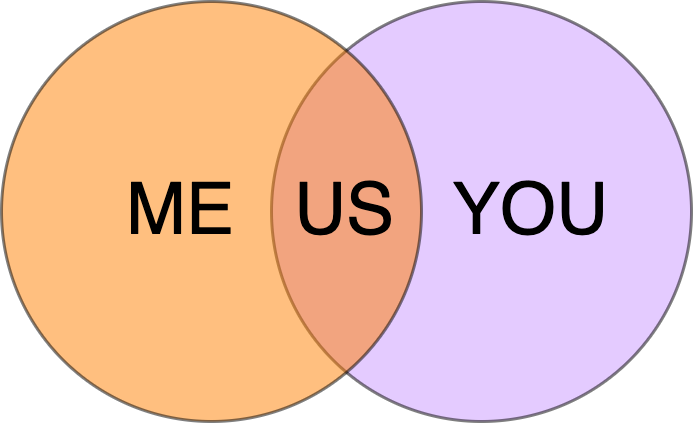American Gods is a show I finished recently and really enjoyed. Neil Gaiman is a masterful writer and has written many comics/graphic novels and books that I really love. His work is not only entertaining, but extremely well researched and has many layers to consider in the stories.

At this point in American Gods, all we really need to know for what I am saying here is that the scene I am talking about is about a guy, Salim, who is struggling with love, the loss of love and trying to understand and accept who he is. He meets this woman who runs the hotel he is staying at, Toni, and she invites him to the party they are having that night. He is feeling awkward and self-conscious. He makes some comment about feeling “unsafe”, to which she replies:
Sometimes unsafe and shame can feel similar, but shame is a whole lot of made-up bullshit… Try being your true self, in your own right. It may feel scary at first, but you’ll be safe.
~ Toni – American Gods, S3E8, 30 min
I really liked this line and have a few thoughts on it…
—
Unsafe is a form of fear. That we are not going to be OK. It may not be a life and death kind of unsafe, but something still feels like it will be jeopardized if we do not protect ourselves or do something so we can move back to feeling OK again.
What if Toni is right and feeling ashamed is just masquerading as feeling unsafe, because that feels more acceptable? Our safety is something we can externalize and shift the danger and “bad guy” to something outside of ourselves. Shame is all inside. It is us. We protect ourselves when we feel unsafe. There is a sense of power and control in that. We hate ourselves when we feel ashamed. There is nothing much more vulnerable than feeling like we can’t even count on ourselves. Like we are less than.
But, as Toni says, “…shame is a whole lot of made-up bullshit.” It is the story we are telling ourselves and because it is spawned in the depths of strong negative emotions, we can be sure that it is also largely “made-up bullshit” of distorted thoughts and beliefs.
Merely knowing this truth is not enough to just let the shame go. But being able to see the shame for what it is allows us to bring it more out into the light of our consciousness and view it in ways that we maybe haven’t before. The superficial story of shame can be an infinite amount of things, but the deep-down belief that we keep telling ourselves is always the same: we are not good enough or OK as we are.
If shame is about not being whole – for that is what being less than OK or good enough is really saying – then it is also completely understandable that the emotions get switched so easily to the fear and categorized under the feeling of being unsafe. For if we are not our complete self, we are truly playing with “less than a full deck”, so to speak. It can feel like there is not enough of us to manage, care for or protect ourselves. It is infantilizing ourselves and that can feel not just embarrassingly shameful, but terrifyingly unsafe. Again, even if it does not feel like a life and death scenario, we may sit back and believe deep in our heart that we don’t have what it takes to manage ourselves and our life adequately. To watch ourselves show up in the world, day after day, knowing that it is only a matter of time before we screw it up again. No wonder we feel unsafe and want to protect ourselves…hell, mostly from ourselves!
Now, we have already established that this is all bullshit… the made-up kind. We’ve also gone over that merely knowing this won’t really save us from doing it again. But, at least one antidote to this stinking pit of a hell of our own making is to start to wonder where the rest of “us” has gone. The rest of us that we feel is not present in us. Unless something is going on that I am not aware of, all of us, all of our parts, are there, somewhere. It was never gone and it has been only a whole lot of internal propaganda that has brainwashed us into believing that we are deficient.
Just like believing that we are unsafe can give us power and control to think we are protecting ourselves from some outside threat, it is that same thinking that allows us to give up ownership to the parts of ourselves that can make this better…make us whole again. The others in the world whom we’ve been jealous of for being able to handle things that we can never seem to get together ourselves are really just us desperately looking for that part of us that we are too afraid to embrace.
I mean, it is not literally that. Who knows exactly what it is for each of us, but it definitely is us not giving ourselves (our whole selves!) a chance to see if we can do it. It is so much easier to look at others, see just the positive outsides that they show us and compare that to our most negative beliefs about our insides. We just never give ourselves a chance and definitely miss the part about how other people are probably doing the same messed-up thing we are. (Why are humans so complex and messed up?)
Once again, Toni comes to the rescue with “Try being your true self, in your own right. It may feel scary at first, but you’ll be safe.” Specifically, she means that Salim will have others to support him if he can let himself go tonight and be his true self, but we each have our own version of this fork in the road. It would feel a whole lot easier if we all had a Toni and those awesome, supportive, polyamorous, sex party people there to let us relax into being us, but it doesn’t mean that we are totally alone. Believing that is also selling ourselves short.
Be brave, take small steps, look at your fears and wonder where inside of you the hero you are looking for is. Trust that others are not judging you nearly as harshly as you are yourself and that there are many more people who want to support you, to love you if you are brave enough to try being your true self. And most likely won’t throw you away if you aren’t very good at it yet… stop buying into that BS.
Why it is so easy for us to believe we are so shitty is beyond me. I get why it happens and see all the ways I do it to myself. It is just heartbreaking that it is so universally easy for us to do. How so many full and rich lives are wasted looking for a missing piece that was just hiding out inside us looking like someone else out there in the world. We can stop trying to look for it outside of ourselves and stop seeing others as a fix for our broken selves. Others will seem all the more beautiful when we can start seeing ourselves that way too.


